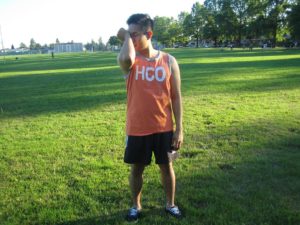Peach allergy can arise as an actual food allergy or from birch pollen allergy. When it comes to an actual food allergy, it is a real allergic reaction to the fruit. As for birch pollen allergy, the individual develops an allergic reaction to the fruit due to the similarity of the protein to the birch pollen. In such instances, the body starts to recognize peach as birch pollen and triggers an allergic reaction.
What are the signs?
Peach allergy initiates the same symptoms as other food allergies. Generally, the individual experiences a tingling sensation inside the mouth that is followed by swollen lips, throat, tongue, face or in other body parts.

Other symptoms that might arise include:
- Itchiness
- Hives
- Wheezing
- Nasal congestion
- Abdominal pain
- Nausea
- Vomiting
- Dizziness
- Diarrhea
- Difficulty breathing
- Lightheadedness
In some cases, a severe reaction or anaphylaxis might arise. Anaphylaxis is a dangerous, whole body reaction. It triggers the usual symptoms of a reaction but also causes a drop in the blood pressure, rapid pulse, airway constriction, slurred speech, erratic breathing and loss of consciousness. Prompt medical care is required to reverse a severe reaction.
Management
The treatment for a minor peach allergy typically involves the use of antihistamines. When this over-the-counter medication is taken right after ingesting the fruit, it can relieve the itchiness and hives.
For severe allergies, an epinephrine shot is usually required. This medication works by reversing the reaction to the allergen.
The prevention of an allergic reaction involves avoidance of foods that contain the fruit. This necessitates checking the ingredient list and asking the server when eating outside. In addition, it is also necessary to undergo testing to ensure that the individual is not allergic to other fruits in the Rosaceae family.
